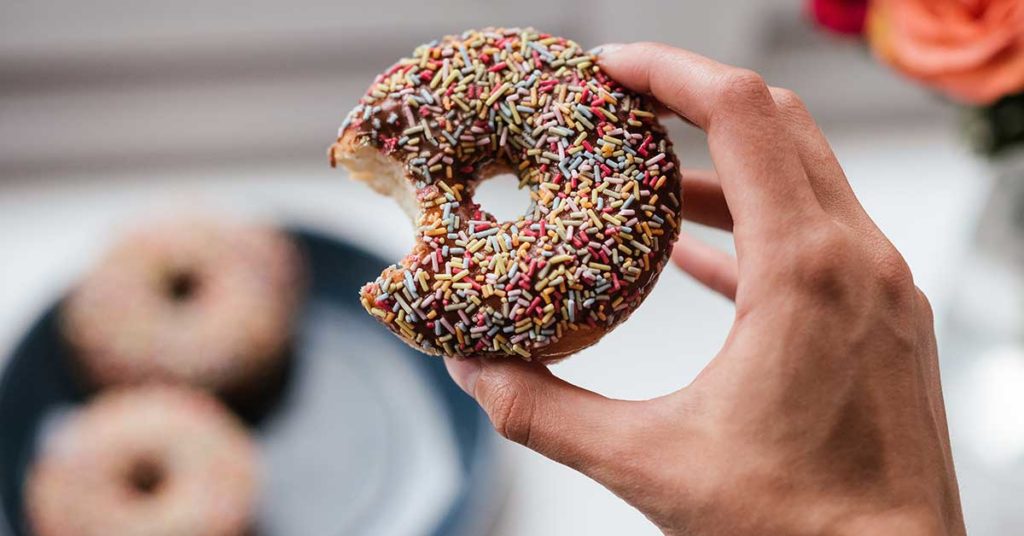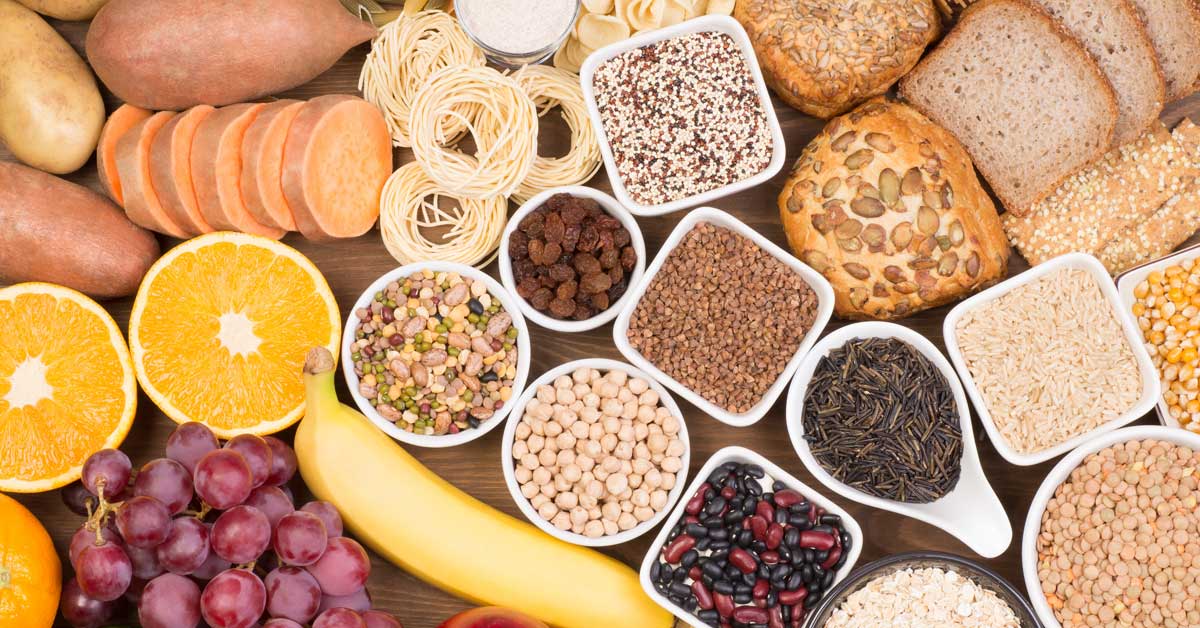What are Carbohydrates & Why do I Need Them?
All foods are made up of three macronutrients: protein, fat, and carbohydrate. Carbohydrates are the main source of energy for the body. Carbohydrates are used as energy for all cells, tissues, and organs. Your body is able to store carbohydrates in the form of glycogen in your muscles as a source of energy if your blood glucose (sugar) is low. Carbohydrates are defined as carbon chains, and the length and shape of the chain determines if they are a simple or a complex carbohydrate.
How Much do I Need?
Counting carbohydrates is typically unnecessary unless specified by your doctor. Not only can counting carbohydrates become a daunting and time-consuming process, it can also lead to an unhealthy relationship with food. The Institute of Medicine (IOM) established a Recommended Dietary Allowance (RDA) for carbohydrate of 130 g per day for adults and children. This is the minimum amount of carbohydrate required to provide the brain with an adequate supply. A general guideline to follow is making 45-65% of your daily food intake carbohydrates. If this still seems overwhelming, try to make about 50% of your meals carbohydrates.
Complex Carbohydrates
Fiber and starches are complex carbohydrates. They are utilized by the body to slow down absorption which prolongs the release of energy from our foods. This process gives us that “full” feeling so we stay satisfied longer. This is because our bodies cannot breakdown and absorb fiber. The IOM set the Adequate Intake (AI) of fiber at 14g per 1,000 kcal. Evidence shows that adequate fiber intakes help to decrease the risk of chronic disease and other health-related conditions. The foods below are complex carbohydrates that also provide your body with numerous vitamins and minerals:
- Vegetables
- Fruits
- Whole grains (quinoa, brown rice, oats, etc.)
- Beans
- Lentils
- Dairy (yogurt, milk, cheese, cottage cheese)

Simple Carbohydrates
Simple carbohydrates are classified as sugars and can be found naturally, such as in milk and fruit, or they can be highly processed and added to foods such as syrups, sugar alcohols, and artificial sweeteners. Simple carbohydrates affect blood sugar levels based on their fiber content. Fiber in fruit helps to slow down the breakdown of sugar, which helps us avoid a spike in blood sugar. Sugars that are heavily processed do not contain any fiber, so the body breaks them down quickly causing your blood sugar to spike.
When the body quickly uses these carbohydrates for energy, you are left feeling sluggish, tired, and hungry. Simple carbohydrates include:
- Soda or diet soda
- Candy or candy bars
- Cookies, cakes, brownies, muffins, and other baked goods
- Fried foods
- Sugary cereal
- Fruit juices

Common Types of Sugars
Table sugar, or sucrose
- Naturally made by all green plants
- It is pure sugar and so has no additives or preservatives
Coconut Sugar
- Processed from the sap of the coconut palm tree
Honey
- Natural sweetener
- Contains small amounts of vitamins, minerals, and antioxidants
Agave
- Processed from the agave plant
- More neutral flavor, less calories, carbohydrates, and sugar than honey
- Low on the glycemic index – it is broken down more slowly and your blood sugar will not spike as much
Sugar alcohols
- Also known as erythritol and xylitol
- Check food ingredient list for “sugar alcohol” or words ending in “-ol”
- Used as reduced-calorie sweeteners
- The body is unable to break down sugar alcohols and use them for energy. Because of this, excessive consumption can cause digestive distress and a laxative effect.
Artificial sweeteners
- Processed low-calorie sweeteners
- Also called sugar substitutes or non-nutritive sweeteners
- Can help reduce calorie intake, but offer little-to-no nutritional benefits
- Common artificial sweeteners
- Stevia, Aspartame, Saccharin, Neotame, Ascesulfame-K, Sucralose
- These artificial sweeteners range from 180-13,000x sweeter than sugar
- The body cannot break down artificial sweeteners to use for energy. Similar to sugar alcohols described above, excessive consumption can cause digestive issues and a laxative effect.
Which Sugar is the Best?
Sugar is sugar – the body cannot tell the difference. Some sugars are found in nature while others are highly processed. Choose a sweetener based on your preference, not because you think it will provide you with health benefits. Due to the minimal amount of nutrients in some sweeteners, you would have to consume a lot of it to get any health benefits. A well-balanced diet can include sugar, as long as it is not the sole source of calories. The body can more readily utilize natural sugars such as table sugar, honey, and fruit.
Takeaways
- Carbohydrates are necessary for the body to function properly. Remember, they are used for major body functions and energy.
- Carbohydrates are separated into two groups, simple and complex.
- While simple carbohydrates are less nutritious, they do not have to be avoided completely. Balance and moderation is key when it comes to simple carbohydrates.
- Complex carbohydrates help keep you feeling fuller for longer and also contain many other nutrients that are part of a healthy diet.
- Aim for 45-65% of your foods to come from carbohydrates.
- Ultimately, the body breaks down all carbohydrates the same, no matter the type. Simple carbohydrates are used quicker, raise blood sugar quickly and provide quick bursts of energy. Complex carbohydrates provide longer lasting energy and additional nutrients.


